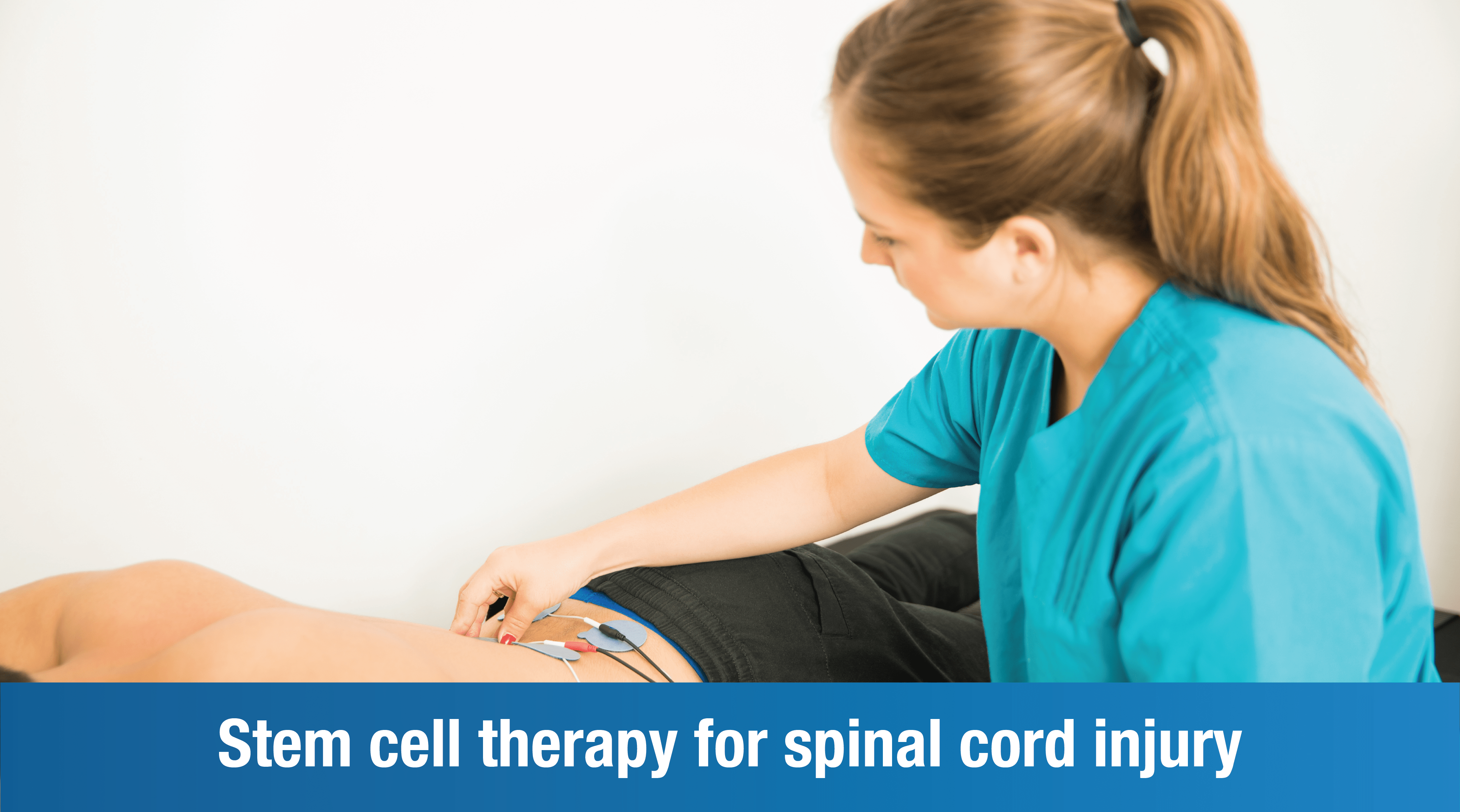
Cell therapy for spinal cord injury
Around the world, nearly half a million suffer spinal cord injuries every year. Often regarded as the most devastating and crippling of neurological conditions, an SCI can lead to weakness, loss of muscle function, and even lack of sensation in the body.
So, what happens to the quality of life after suffering an SCI? How does one live with an SCI?
By transplanting autologous mesenchymal Cells, award-winning Cell specialist, Dr Na’eem Sadiq offers a ray of hope to SCI patients. Plexus’ regenerative rehabilitation for SCI is the best program for SCI in India.
Read on to know more.
What is an SCI?
If you grew up in the 80s and 90s you’ll have heard of Christopher Reeve, aka SUPERMAN.
While the superhero is known for his superhuman strength, an injury to his spinal cord turned out to be Christopher Reeve’s kryptonite. Not only was he bound to his wheelchair for the rest of his life, the world also never got to see him in another Superman movie.
A spinal cord injury (SCI) is caused by a traumatic injury to the spinal cord. The injury is so severe that it can either bruise, partially tear, or completely tear the spinal cord.
The time period immediately after the injury is sustained is referred to as the acute phase of SCI. It is a critical period when the patient must be under supervised care at the hospital. Typically, during the acute phase of SCI the patient is immobilized to avoid further damage to the spinal cord, to reduce existing damage, and possibly treat any other injuries that may have been sustained.
Types of SCI
There are four types of SCI. Each one is defined by the exact location of injury on the spinal cord.
Cervical SCI
- Most severe
- Injury to the neck
- May lead to partial or complete paralysis (quadriplegia)
- No sensation below neck and shoulders (including arms and legs)
Thoracic SCI
- Injury to abdomen, upper chest, and/or mid-back
- Can cause paraplegia (no sensation and movement waist down)
- Other symptoms: incontinence and lower back pain
Lumbar SCI
- Affects hips and legs
- Can lead to paraplegia
- Other symptoms: bladder and bowel control troubles
Sacral SCI
- Rarest type of SCI
- Least severe
- Affects hips, buttocks, upper thighs, genitals
- Most patients retain ability to walk
Symptoms of SCI
Depending on the severity of the injury and type/level of SCI, the symptoms experienced by patients may also differ. However, below are some signs and symptoms that must be addressed right away if experienced after a traumatic injury or accident:
- Respiratory issues
- Muscle weakness
- Loss of feeling in arms, legs, or chest
- Loss of voluntary movement of muscles in chest, arms, or legs
- Loss of bowel and/or bladder control and function
- Loss of sexual function
Understanding Regenerative Cells and Cell therapy
Cells are undifferentiated progenitor cells that are procured from one part of the body and can transform and/or multiply into specialized cells.
Cell therapy is used to repair or restore function of diseased, dysfunctional, and/or injured tissue by injecting Cells (or their daughter cells). It helps in immunomodulation as well as in reducing inflammation. Additionally, injected Cells secrete growth factors, and also produce supporting cells that can protect damaged motor neurons from further damage and degeneration.
Regenerative Rehabilitation for Spinal Cord Injury
Neuroprotection and neuroregeneration are the cornerstones of regenerative medicine.
Research suggests using mesenchymal Cells to treat SCI can be extremely effective and beneficial to the patient. Mesenchymal Cells or MSCs are adult Cells that have anti-inflammatory, immunomodulatory, self-renewal, cell-division, signaling, and differentiation properties. They can divide and develop into many specialized cell types in specific organs and/or tissues. They can even become unique Cell types and can create more Cells when cultured in a laboratory. MSCs can replace cells that are diseased or damaged.
MSCs ability to replace damaged cells makes them the perfect choice for treating SCI. MSCs are injected into the spinal canal to protect and regenerate the damaged spinal cord. These then form fresh synapses and axonal sproutings that facilitate the growth of new neurons. With time, the cells also transmit messages between the brain and spinal cord. Structural improvements in the cell tissues can restore blood supply.
Cell therapy at Plexus is a non-invasive, risk-free procedure. We believe Cell therapy can help in –
- Managing symptoms of SCI
- Improving quality of life
- Enhancing everyday functionality
- Preventing further nerve damage
- Reducing inflammation and improving immune function
- Fostering brain development
- Speedy post-procedure recovery
Your spinal cord injury does not have to stand in the way of you leading a healthy, fruitful, and purposeful life. At Plexus, we also offer customised care programmes for SCI that include Cell therapy, occupational therapy, speech therapy, physical therapy, and more.
To know more, please call:
+91 89048 42087 | 080-2546 0886
080-2547 0886 | 080-2549 0886
FAQs
How much does Cell treatment for SCI cost in India?
The cost of Cell therapy for SCI depends on the level and severity of SCI. At Plexus, we offer customised and flexible payment options.
How successful is Cell therapy in India?
Cell therapy is proving to be remarkably successful in treating a range of neurological disorders.
Does Cell therapy last a lifetime?
Research indicates that injected Cells will continue to repair the target area for up to 1 year. But this can differ from case to case, depending on the type and severity of the disorder/disease.
Who is a good candidate for Cell treatment?
Cell therapy benefits patients with certain neurological disorders, autoimmune disorders, cancers, metabolic disorders, bone and joint disorders, etc. may be good candidates for Cell therapy.
Is there an age requirement for Cell treatment?
There is no age limit for Cell therapy.










